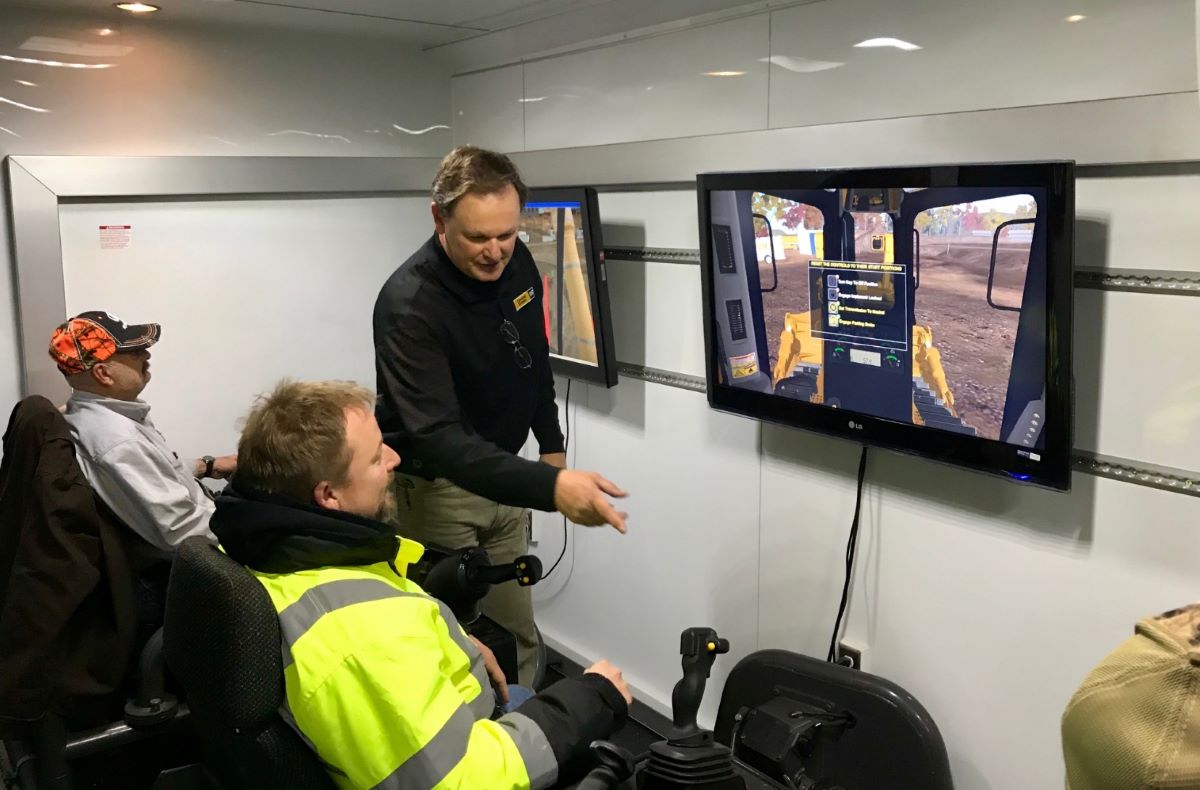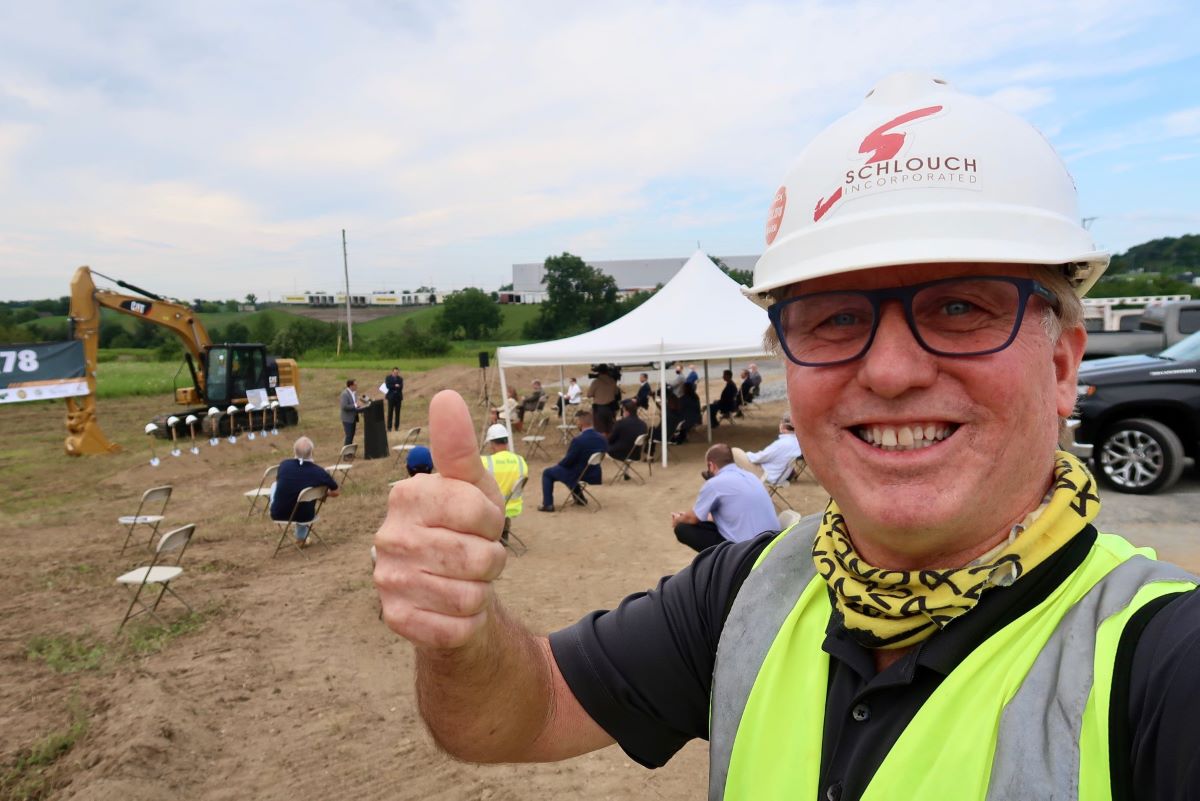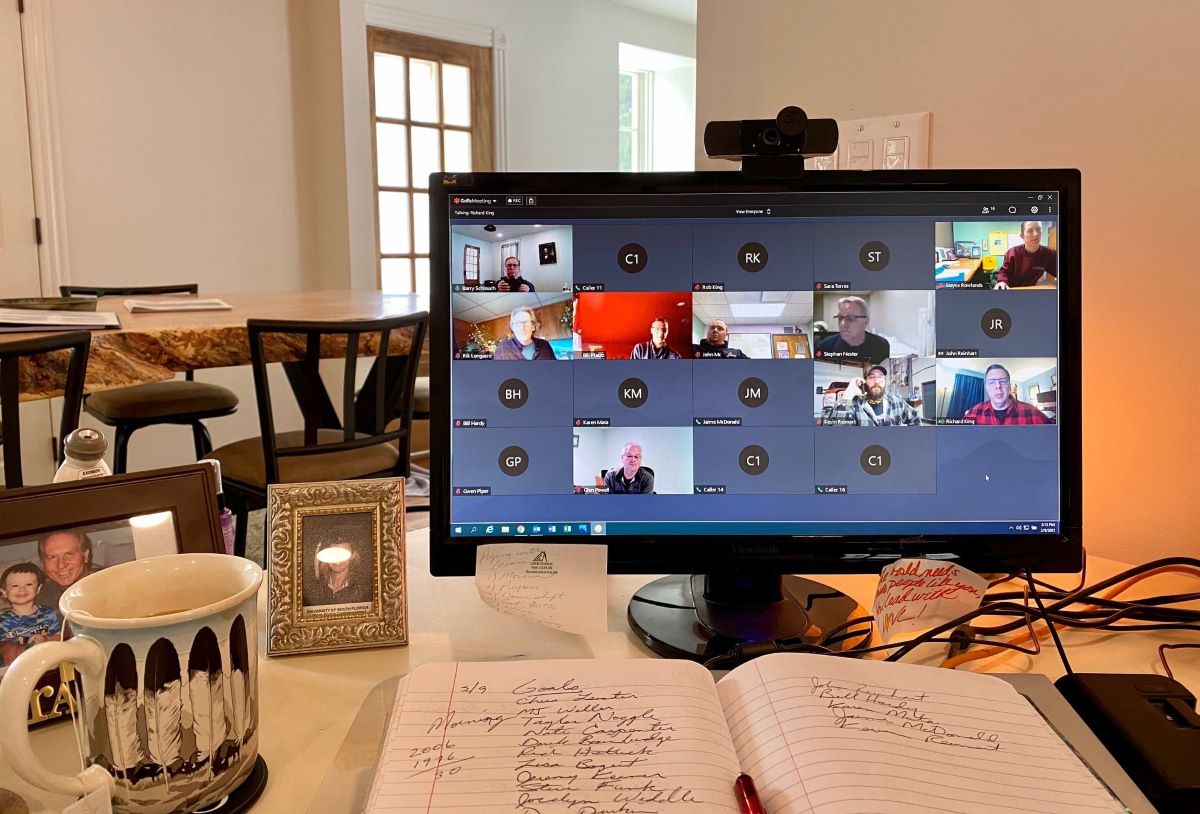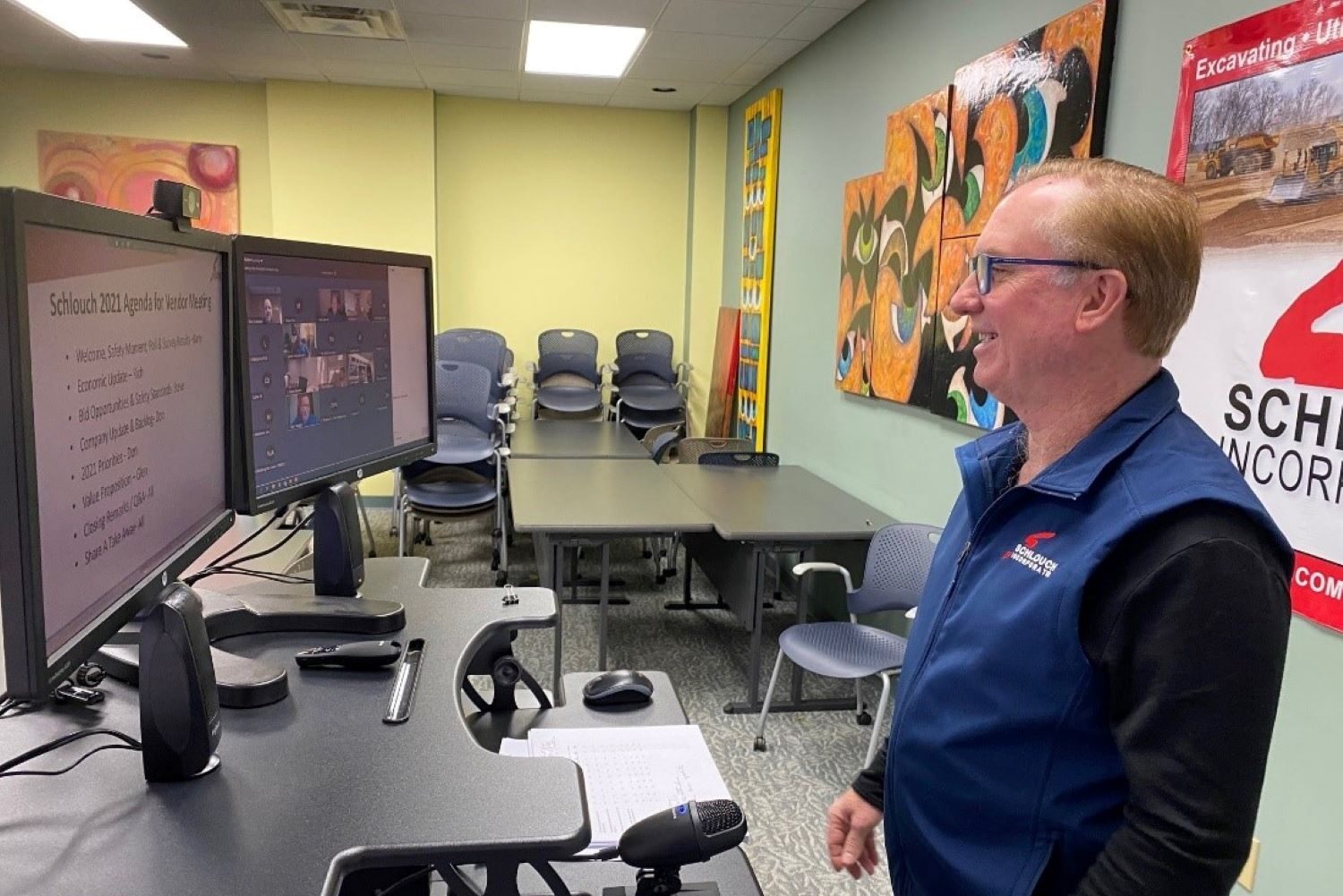Schlouch INC.’s 3 Game-Changing Theories and the Art of Emotional Intelligence
Founded in 1983, Schlouch is a construction firm dealing in site preparation and infrastructure construction services. Based in Blandon, Pennsylvania, the company takes pride in receiving recognition all year round for its commitment to safety, training as well as to be one of the fastest-growing leadership and businesses.
Yet, it’s what is behind the scenes that are most worth sharing – how did the founder bring up his basement business to be a Pennsylvania leading site preparation specialist? What lessons have he and the team learned by heart, so far?
Disclosing Three Game-Changing Principles
Started the company at 25 years-old with just $2K, Barry Schlouch from his basement without owning any equipment or any firm jobs on the books – worked on excavating and utilities. Till his first project of a $15K assignment to prepare a site for Wendy’s Restaurant in West Reading – which opportunity, the founder revealed in a recent interview with podcaster Ditch Digger, had enabled him to add design, survey, blasting along with other services, and more importantly to grow his business into an employee base of over 200 people as of today.
More from the conversation, the founder talks about the three game-changing principles that are setting the company’s performance apart including the secret sauce of high customer retention rate, mentoring & training, and last but not least the entrepreneur mindset that should be built in every level of the firm.
Retention and the Concept of Genius Bar
To any business, repeatable customers are the secret to success and proof of your service’s value. How did Schlouch keep 60% of its customers happy and coming back every year? Especially within the constructing industry, what has the team done to make sure the desired retention rate happens?
Every company, he says, has its own Genius Bar – a team of experts that customers could consult and call on. At the firm, the Genius Bar are experts that help manage or estimate client’s risk, “There is a lot of risks I building projects – What type of financing they got? What they use is going to be lease?” The team would ask questions and act like customers’ risk managers, Schlouch explains “we have our in-house so it can be designed and estimate to provide tight budgets with best applicable math methods.” The bottom line of a high retention rate is how good the Genius Bar is at managing risk and doing its best to protect customers’ budgets – not fighting against it or changing it.
Tripling Down Your Budget for Training

“We are all-in on training. I would say on average we put four times the investment on training than other companies.” Schlouch addresses his ultimate strategy is tripling down – ‘whatever your budget is, take it times three’– on training
You cannot afford not to do it, hence, find the money and do so. The founder takes pride in his team for committing to the skill-service-value model – which he explains to work in a cycle of the following: once skills are upgraded, you provide better services and that tells a story of your value. Acquiring that model, the company goes bold on its training and human developing process – which, Schlouch says, begins with just taking entry-level people and asking how managers can help them get better at their jobs.
“We have like 8 certified operator mentors in our companies who are taking on the role of formally mentoring people. I’m talking real field metrics that you take the time with a person to grasp what they need throughout the day and make sure they are provided.”
The Two Entrepreneurial Values
Lastly, is the entrepreneur mindset that explains his today’s success and also is the theme of every decision-making at the firm – starts wherever you are and finds the purpose for it.
For either individual or organization that, he says, is how great things happen.
“If you are a cashier, be the best at it, start right where you are and find out what great work looks like, be persistent in showing up and just give all in.” Like how Schlouch started the company with nothing much but his commitment to work with the best effort.
Along with that is the importance of ‘purpose,’ “I have always been able to find the purpose of what I am doing. When I was farming, I felt good because that is how my family are fed. In construction, as we are putting sewer lines, we are preventing pollution and providing civilization.” Those are the big missions the founder sees through his daily work as a business owner and somehow have ever since been the boost for his success.
The Culture of Open Communication
On a recent radio episode with the construction trade show organizer CONEXPO-CON/AGG, Don Swasing – Chief Operating Officer at Schlouch went on sharing his insights into the industry, experience on building high performance teams and the mentality that helps develop the culture of open communication.
Challenges and Why Be Alert to Growth Opportunity?

It is no news that the construction scene is seeing a decline in labor, while some companies are struggling to find root causes, a few have found its solution. With 30-plus-years of experience venturing throughout the industry, Swasing says, the labor shortage is a question of attracting and retaining talent and it can be answered with the keyword ‘reputation’.
“The attraction, I think it comes back to your public reputation. At the end of the day, you treat people well, you pay them well. Is their career path? What does the equipment look like? What’s your brand? That gets them in the door.” On the other hand, retention is a little different – as it focuses on who the management is, are they going to be mentors or bosses? Are they willing to develop and take care of their people? “Once you get them un the door, you got to take care of them,” Swasing explains.
On top of that the chief brings in his view upon growth opportunity and how his team is very alert and careful of it.
“We see continued strong growth opportunity, but we’re very cautious to not delude ourselves and diminish our clients’ experience. Because of the shortage of labor, we’re making our money with what I call ‘our nose’, with what we say no to.” He explains as 60% to 80% of the firm’s business is repeated, they are building strong relationships and growth opportunity appears to be quite steady, yet notably – it also means they are more exposed to being over-allocated.
You have to say no, even if it is a beautiful job – because without the resources and the ability to deliver, you would make big and unrecoverable mistakes. You gobble up everything and cannot figure out how to digest it – you dilute everything and then fail everywhere.
“That’s not how you built your business. You did not build it that way. Once you stretch your people, you’re at tremendous risk, and everything you’ve built could go down the drain in the blink of an eye,” Swasing says.
Another factor that also counted to make great impacts upon growth opportunity is investments in new equipment and technology. This is how the chief and his team approach this matter – “we start by thinking about the right machine for the right job. Or else you’ll pay for that. You’ll pay for it in repair costs and your production will go down.”
At Schlouch, the team invests heavily in something called ‘actionable intelligence’ – which is data that ultimately compelling for applied action. One of the things they have learned along the way, on making investments is “make sure you understand what you are doing to do with the data before you get it,” the chief explains how data can be overwhelming and distracting if you don’t have a plan and a clear intent on its usage – or the need of your operation. Be highly alert about what you want, go get it, and don’t linger!
The Leadership on Fostering Open Communication

Continuing the conversation, the chief reveals his unique viewpoints upon the culture of open communication and the practices of Emotional Intelligence throughout many levels – how it all started with the kickoff of facilitating difficult conversations through two steps.
The first step to facilitating such a demanding conversation is through identifying if it’s a crucial talk. “It’s got three components in it, inside of a crucial conversation,” Swasing explains, firstly, it has got either an actual conflicting point of view or the potential to be; secondly, it already has demonstrated very strong emotion; thirdly and most important, it has to be high stakes – such as relationship dynamics, a change order, or a transaction, etc. Without those three elements, he addresses, they are just normal conversations.
The next step, as leaders you have to grasp hold of the ‘why?’. Why is it a conflicting position? What is going on and are there strong emotions?
“I’ve studied communication failures for my entire career, including many of my own. What I’ve concluded at the end of the studies is, on both sides of every one of these crucial conversations, it’s always fear. It’s fear of losing something, it’s fear of loss of money, stature. I could go on and on.”
That is why most employees and probably managers have a tendency to avoid it as they do not want to be emotional or angry. And as their chief, Swasing says what he does is to examine ‘the why’ in how he can personally improve the outcome, yet without being too involved in everybody’s conversations.
The chief knows the best strategy here is to coach his people and put nonstop effort to make ways for those talks to happen, the keyword to go against in this project is “avoidance.” “I’m telling you that my impression is the avoidance of those crucial conversations has a much greater impact on relationships. Not to mention how the team’s morale would likely go down as they do not trust each other”
Because lots of people are conditioned at a very early age to avoid conflict and unfortunately, when you move into a leadership role, you will always be exposed to emotional conflicts as well as business problems. Hence, these skills of emotional intelligence must be acquired and developed if you want to stay firm and thrive.
Three-Words Advice for Small to Mid-Sized Business

Healthy culture is beautiful, but what if you are a small to mid-sized business, when you could only afford your focus on the work, not the culture of communication. What would be the essence Swasing suggest for you to get started?
“I’m going to start by asking you what you have done to educate yourself with respect to soft skills. If you are the owner in an executive role, you cannot coach what you do not know or what you are not.” The chief adds before communication the more essential work is to reinforce three mentalities of care, trust, and help. What every employee wants to know, when they are connecting with a company is whether the person cares? Can I trust this team? Will this position or company help me? That is the beginning of culture.
Beyond that is like the founder Barry Schlouch mentioned above, after you take them in you take care of them. According to Swasing, skilled people are more productive, while leadership trains people up, they are not only happy but also are more sufficient for operation.
“They accomplish more, and they represent your company in a positive light, which helps you sell more business. It’s a win-win when you take care of your people.”
The Bottom Lines
With only 38 years into the business, yet the leadership team and people of Schlouch Inc. have solidly proved their maturity in experience and spirit through the core principles of care, trust, and help. On top of that, there were not only great lessons the firm’s founder brought to the table but also the remarkable influence of a good business and meaningful culture Schlouch and his team have made upon the industry.









